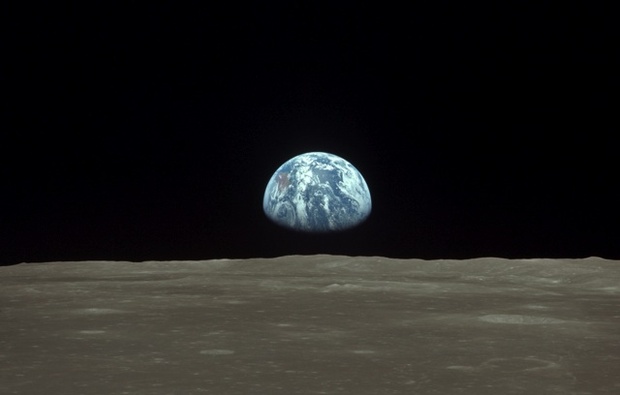3 Aug 2009 - permalink
Maria Kalman muses on Benjamin Franklin and invention:
Don’t mope in your room. Go invent something. That is the American message.
Electricity. Flight. The telephone. Television. Computers. Walking on the moon. It never stops.
Beautiful. (via John Gruber)
31 Jul 2009 - permalink
John Gruber on the decline of Microsoft:
People who love computers overwhelmingly prefer to use a Mac today. Microsoft’s core problem is that they have lost the hearts of computer enthusiasts. Regular people don’t think about their choice of computer platform in detail and with passion like nerds do because, duh, they are not nerds. But nerds are leading indicators.
29 Jul 2009 - permalink
Malcolm Gladwell, always interesting to read, on the psychology of overconfidence:
“In conflicts involving mutual assessment, an exaggerated assessment of the probability of winning increases the probability of winning,” Richard Wrangham, a biological anthropologist at Harvard, writes. “Selection therefore favors this form of overconfidence.” Winners know how to bluff. And who bluffs the best? The person who, instead of pretending to be stronger than he is, actually believes himself to be stronger than he is.
28 Jul 2009 - permalink
Vanity Fair asked its editor along with representatives from the research and copy departments to read through Sarah Palin’s resignation speech and it’s not pretty.
28 Jul 2009 - permalink
Experts guess that between 60 and 75 percent of the NYSE’s daily trading volume is just computers trading against one another using a variety of strategies. Recent HFT investigations by Donefer, Themis Trading, and sites like Zero Hedge have brought to light a lively ecosystem of algorithms, or “algos” in the parlance, that use ECNs in different ways to make money.
What the vast majority of these algos have in common is that they are not long-term, buy-and-hold “investors” in the classic sense. Rather, they focus on executing as many trades per second as possible and on turning a small profit (often pennies or fractions of a penny) on each trade. This combination of high speed, massive volume, and razor-thin per-trade profits adds up over the course of a day, week, or year to some very large numbers.
How the hell is this legal?
Apparently proprietary trading code was stolen from Goldman Sachs earlier this month. US Attorney Facciponti says
there is a danger that somebody who knew how to use this program could use it to manipulate markets in unfair ways.
How is it any different from what Goldman – or any other trading company with similar software – could do?
24 Jul 2009 - permalink
Joe Wilcox:
Move over Microsoft. Apple can claim big, big market share numbers, too. According to NPD, in June, nine out of 10 dollars spent on computers costing $1,000 or more went to Apple. Mac revenue market share in the “premium” price segment was 91 percent, up from 88 percent in May.
Interesting what happens when you break down the market like this.
23 Jul 2009 - permalink
Fake Steve Jobs (a.k.a. Dan Lyons):
We all know that there’s no fucking way in the world we should have microwave ovens and refrigerators and TV sets and everything else at the prices we’re paying for them. There’s no way we get all this stuff and everything is done fair and square and everyone gets treated right. No way. And don’t be confused – what we’re talking about here is our way of life. Our standard of living. You want to “fix things in China,” well, it’s gonna cost you. Because everything you own, it’s all done on the backs of millions of poor people whose lives are so awful you can’t even begin to imagine them, people who will do anything to get a life that is a tiny bit better than the shitty one they were born into, people who get exploited and treated like shit and, in the worst of all cases, pay with their lives.
22 Jul 2009 - permalink
Jeff Atwood:
In short, I hate software – most of all and especially my own – because I know how hard it is to get it right. It may sound strange, but it’s a natural and healthy attitude for a software developer. It’s a bond, a rite of passage that you’ll find all competent programmers share.
Indeed a healthy attitude and an explanation why developers run the risk of endlessly improving code without external deadlines. Mark a realistic date and stick to it.
20 Jul 2009 - permalink
Marco Arment on vacation:
Most people imagine their personal paradises as something like sipping drinks on a beach and doing nothing. To me, that would be hell. I’d rot into boredom and depression from mental atrophy.
That is very close to how I feel.
20 Jul 2009 - permalink
Today marks the 40th anniversary of the first moon landing by the Apollo 11 crew of Neil Armstrong, Buzz Aldrin and Michael Collins. There are obviously tons of sites mentioning this historic occasion and I thought I’d chime in with a few good links.

The always interesting Jason Kottke has a Giant Apollo 11 post with many high quality links, including the brilliant We Choose The Moon with the activities replayed as they happened.
The Big Picture by Boston Globe is always fascinating and this time they’ve compiled a list of 40 remarkable images for Remembering Apollo 11.
I find the loss of the original tapes of the moonwalk unfortunate beyond belief, so I am glad to see that NASA has released a set of restored high definition videos of the preserved footage.
NASA’s new LRO (Lunar Reconnaissance Orbiter) has returned some impressive images of the moon and the resolution is so much better than anything achievable from Earth that you can quite clearly see the landing sites of the Apollo missions. According to NASA, future images from LRO will be of even greater detail and should put any remaining (and unfounded) skepticism to rest.
